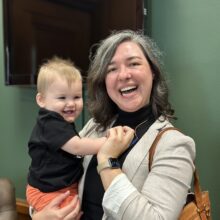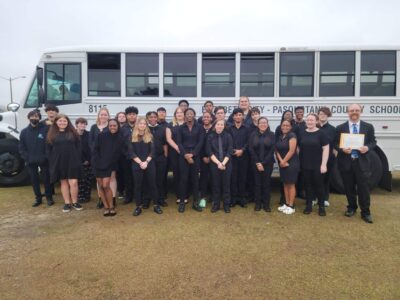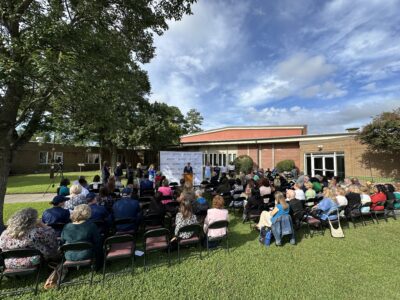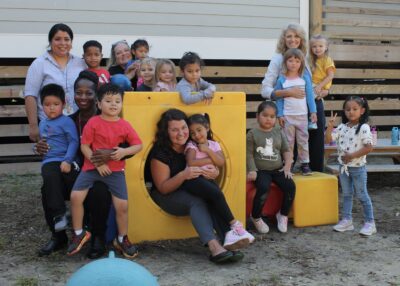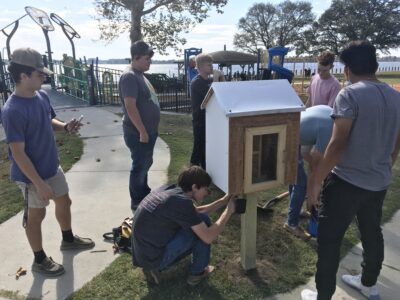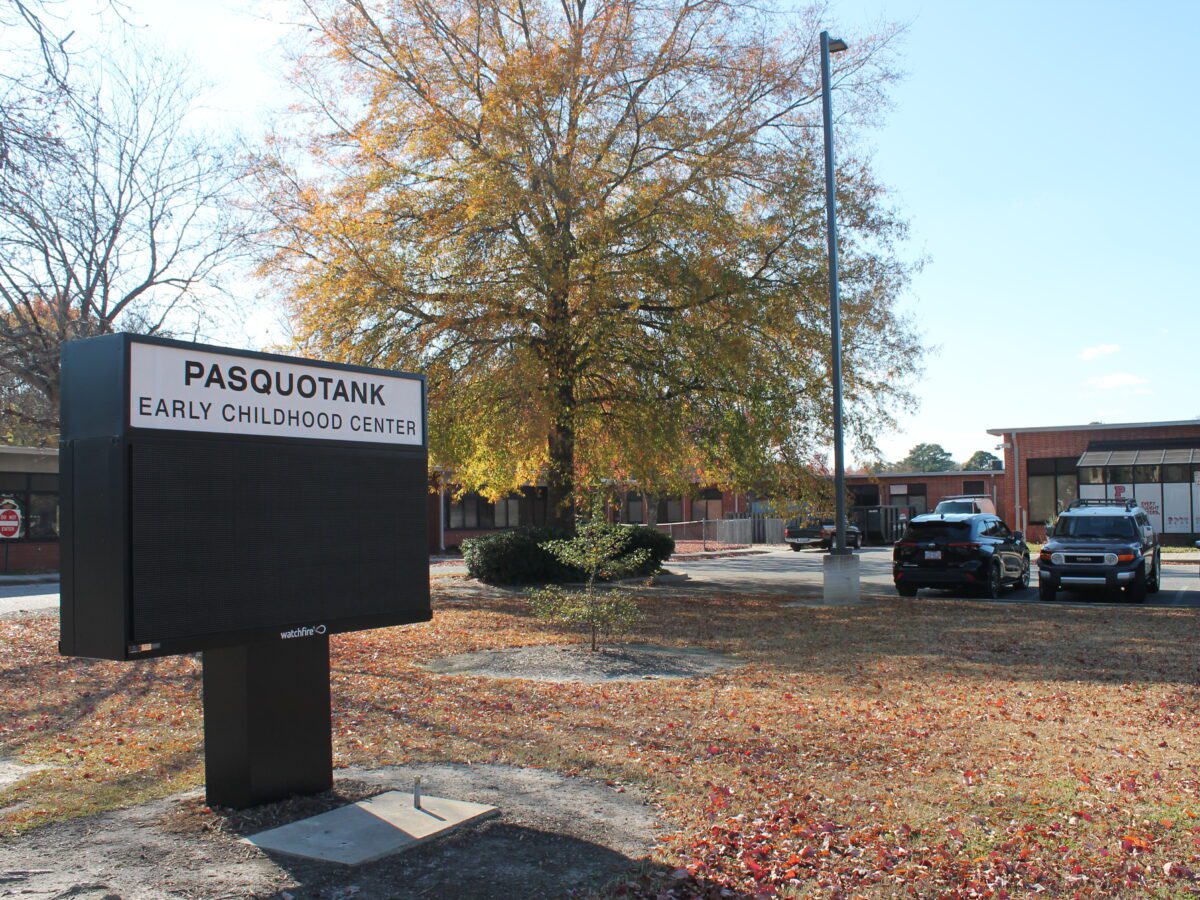
|
|
The sign on Peartree Road in Elizabeth City once read “Pasquotank County Negro Consolidated Elementary School.”
In more recent decades, it read “Pasquotank Elementary School.”
Now it introduces the low, brick building as the Pasquotank Early Childhood Center, continuing its legacy as a site of learning and support for students and their families.
The new Pasquotank Early Childhood Center will house a dozen pre-K classrooms starting in the 2025-26 school year, in addition to serving as the Family Resource Center for Elizabeth City-Pasquotank Public Schools (ECPPS).
Old classrooms are being converted into new offices for child nutrition, early literacy, and English language specialists, bringing these essential services under one roof and making them more easily accessible to the predominantly Black and low-income families in the neighborhoods south of downtown.
Pasquotank Elementary’s past
The decision to close Pasquotank Elementary was a difficult one for district leaders. Superintendent Keith Parker pointed to the decline in student enrollment, the age of the building, and the site’s proximity to another elementary school — P.W. Moore Elementary, just a short walk away — as contributing factors.
“There’s tremendous opportunities for us to do something really creative that we don’t have in the city right now, which is a sort of a universal hub where we can think about pre-K, but also think about parent and family engagement, and about early childhood,” Parker said. “It’s really birth-to-four and then beyond.”
The decision to close the school included recognizing its historical significance and legacy, especially for local Black residents.
Pasquotank Elementary holds a place of significance in the hearts and memories of thousands of former students, teachers, and staff. That long list includes Valerie Bogues, a member of the school board who attended the school when the district practiced racial segregation.
Bogues lived in Weeksville in the 1960s, an area at the southern end of the peninsula that makes up Pasquotank County. Because she’s Black, Bogues had to board a bus early every morning and watch it roll right by Weeksville Elementary — the white elementary school closest to her home — on its way into downtown Elizabeth City.
Pasquotank Elementary was the district’s sole Black elementary school when it opened its doors in 1951.
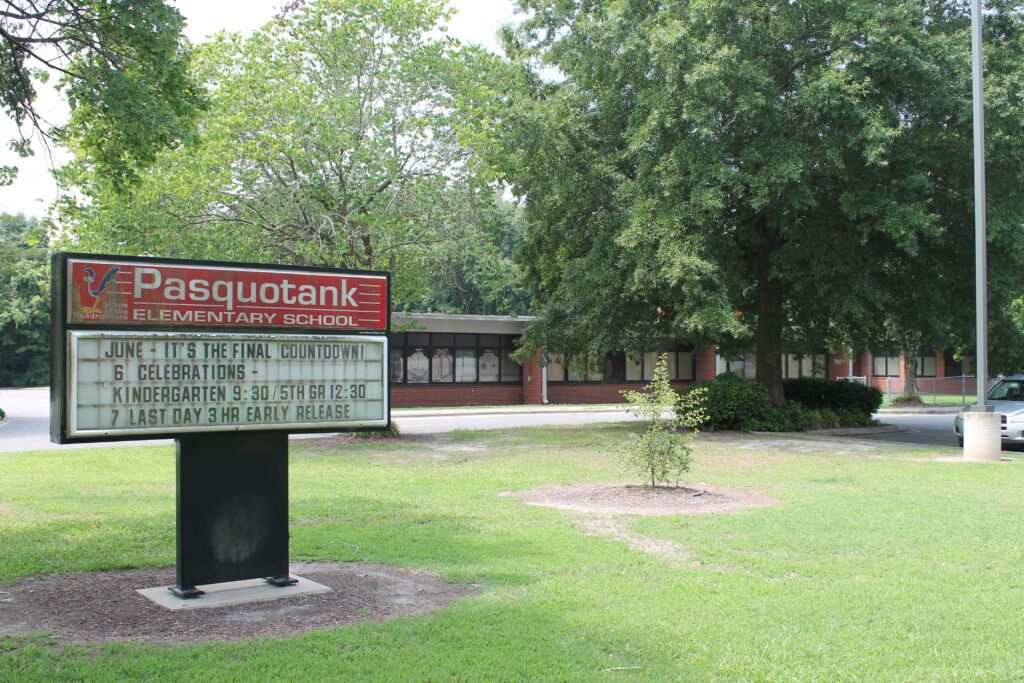
Prior to then, Black students mostly attended one-room schoolhouses that did not meet the “separate but equal” segregation standard that was the law of the land at the time.
Black parents pushed for the construction of the Pasquotank County Negro Consolidated Elementary School, which was seen as a step forward toward racial equality, according to reports from The Daily Advance.
“The main thing I remember about Pasquotank is the coldness of it,” Bogues said of her time there. “Because they did have to shovel coal (into furnaces), and I remember the kids would have to get around the little radiators, you know, to get warm.”
For Bogues and some of her classmates, this ritual came after a long ride on a cold bus.
Despite the cold, Bogues remembers her years at Pasquotank fondly, especially her teachers. She credits them with creating a sense of community pride and ownership of the school. The smokestack for the coal-fired heating system still stands on the property as a reminder of the building’s history.
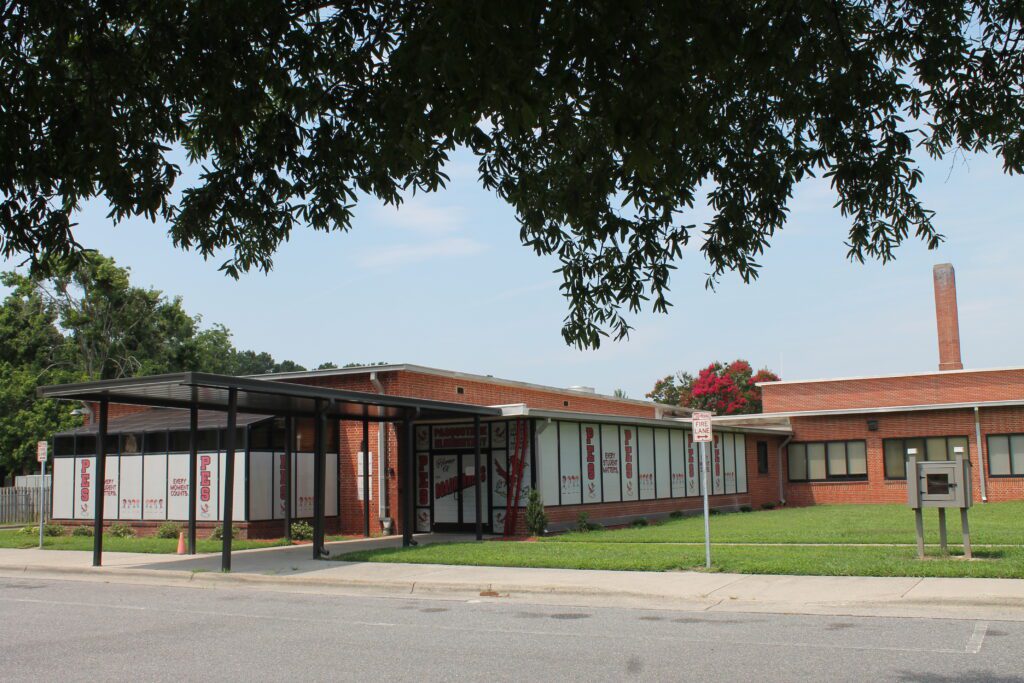
The community’s fondness for Pasquotank Elementary extends through the decades, well after the Supreme Court declared “separate but equal” was inherently unequal and the school was integrated.
“We want to preserve sort of the historic nature of Pasquotank Elementary, but also, how does it become a modernized version of something different that is available for the community?” Parker said.
“The possibilities are just amazing,” said Angela Cobb, chair of the ECPPS Board of Education. “I think it’s really going to become a community center once we get everybody in there and get it refurbished like it needs to be. I think the location of it being centralized is huge.”
The county commissioners approved $1.6 million to renovate the facilities, including the conversion of an entire wing of the building into classrooms that meet the high standards of NC Pre-K.
Pasquotank Elementary’s last principal, Simona White, made sure that students and staff had opportunities to celebrate the school’s legacy in its final year.
“‘Don’t cry because it ended, smile because it happened’ — that was like the theme from March on,” White said during a tour of the emptied building in July 2024.
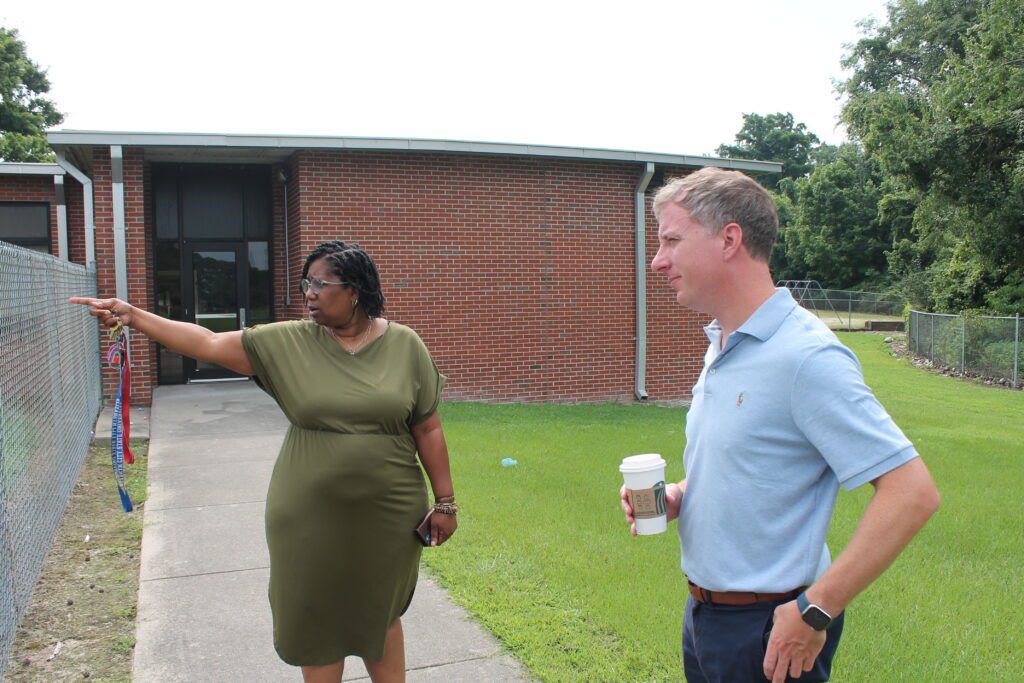
That theme is evident in a video posted to the ECPPS Facebook page in May that includes students sharing highlights of the school’s history.
Students also had the opportunity to visit the schools to which they were reassigned, helping them get acclimated to and excited about their new schools before summer break.
Teachers and staff were essential in creating a feeling of celebration for the students. That was likely made easier by the fact that everyone who worked at Pasquotank Elementary who wanted to retain a job with the district was able to do so.
For example, White’s had 26 years with ECPPS, and is now working on curriculum and instruction, coaching teachers districtwide.
Students, teachers, and staff left Pasquotank Elementary on a high note. In its final year as a traditional public school, it met growth expectations and exited low-performing status.
Parker said he was excited for students to go to their newly assigned schools this year without the stigma some might associate with “a low-performing label.”
Pre-K’s present
Sheep-Harney Elementary is one of the schools to which Pasquotank Elementary’s students would have been reassigned — except it’s already at capacity due to housing 10 pre-K classrooms.
“Once we move, they’ll be able to expand,” said Dani Morris-White, the pre-K coordinator for ECPPS.
The move will also mean Morris-White gets a real office, instead of the room she presented as her “office slash storage closet” on a sweltering summer day that highlighted the supply closet’s lack of ventilation.
“And there’s two of us,” she pointed out with a chuckle, because she shares the office/closet with her administrative assistant.
Morris-White gave up the room that had previously been her office so the occupational, physical, and speech/language therapists could have more space to work with the district’s youngest students.
“We love it here, but we need space,” Morris-White said. “We want to be able to help those kids.”
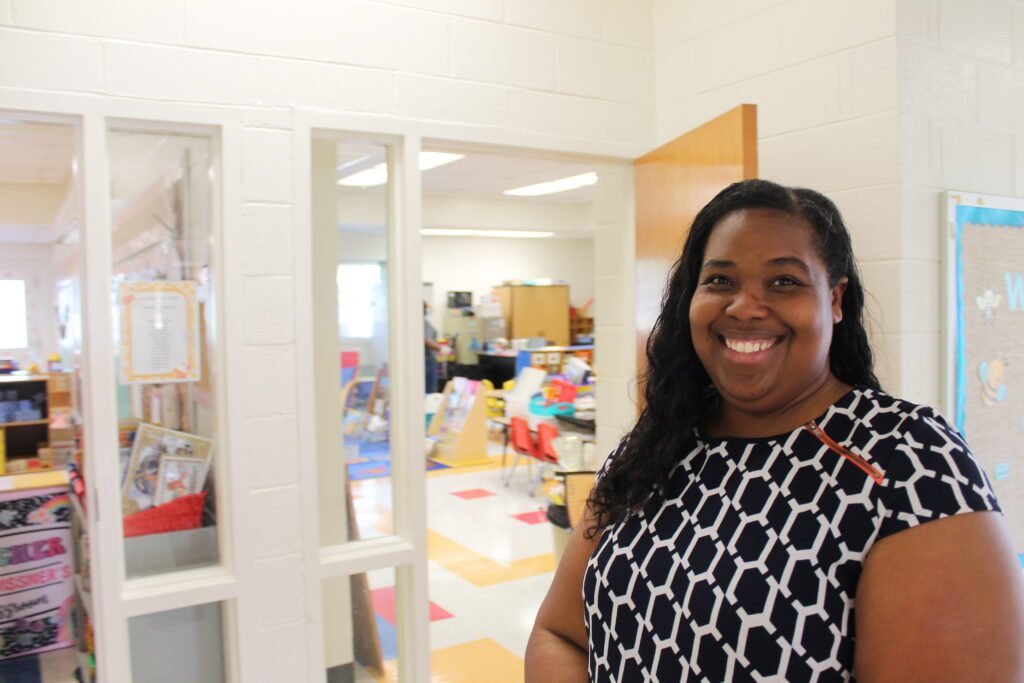

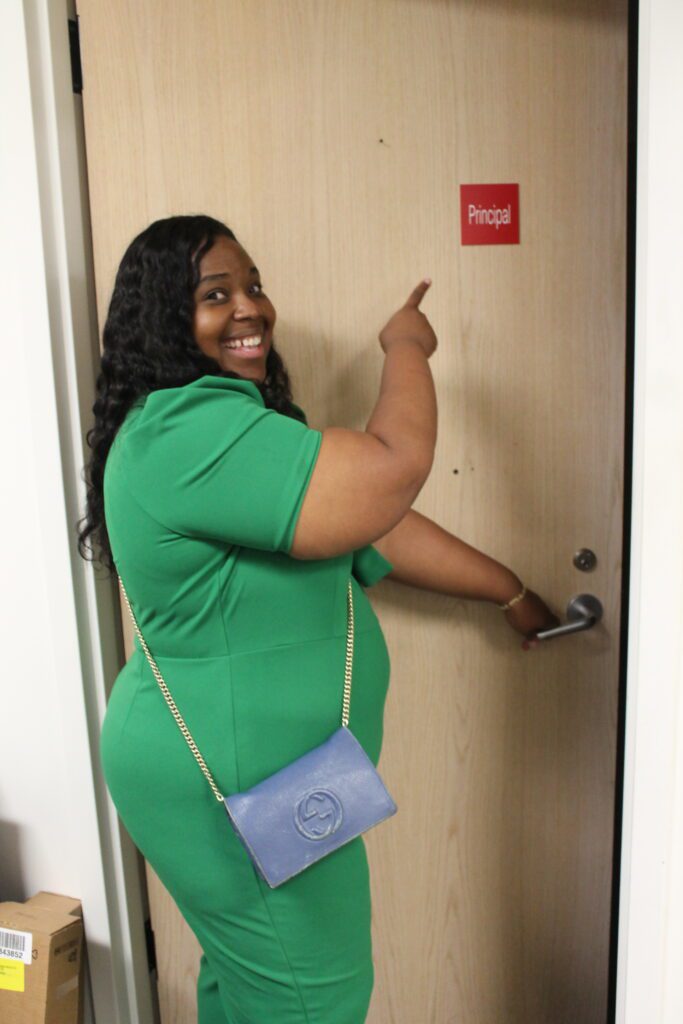
Lack of space is one reason why there’s a waitlist for NC Pre-K in Pasquotank County.
ECPPS is the contracting agent for NC Pre-K in the area. Morris-White oversees the 10 classrooms at Sheep-Harney, plus five other non-ECPPS NC Pre-K classrooms at child care centers around the county.
The new Pasquotank Early Childhood Center will have 12 pre-K classrooms, which Parker hopes will help get children off the waitlist.
NC Pre-K is North Carolina’s public pre-k program, available to families based on income and other eligibility factors. About half of the state’s 4-year-olds are eligible for NC Pre-K, but only about half of those children who are eligible are actually able to attend due to lack of state funding.
As in many other parts of the state, ECPPS braids funding for NC Pre-K with federal Title I funds — financial assistance to school districts serving children from low-income households — to make pre-K more widely available to its students. The amount of Title I funding that a district receives is partially based on enrollment. Enrollment declines put Title I funding at risk, which can limit the availability of pre-K.
Pre-K and other forms of early childhood education are critical to students’ future success.
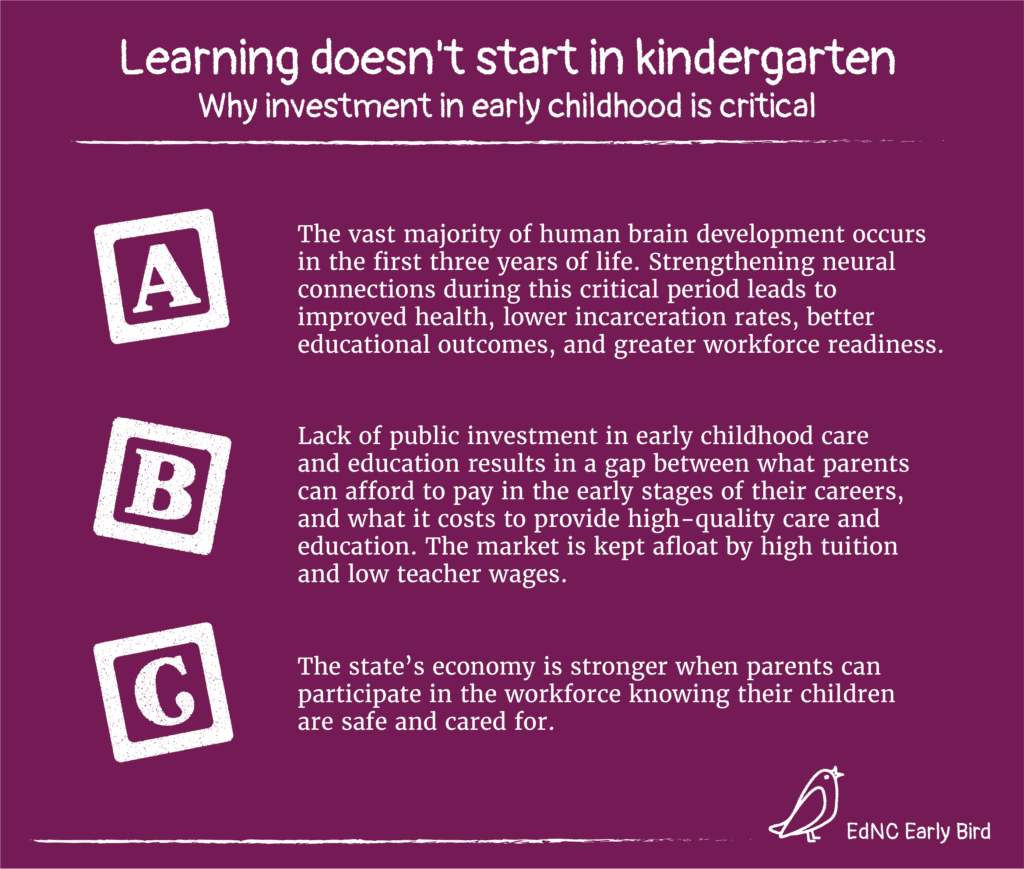
“It’s so important now post-covid, because our children need to know how to get their emotions together and de-escalate themselves and regulate their feelings,” Morris-White said. “That’s one of the things that we really work on with the kids, is being able to express their feelings and talk through their situations and share and play. And they’re getting this before kindergarten, so when they go into kindergarten, they have some of that in their back pocket.”
Decades of research show that in addition to helping young students be kindergarten-ready, early learning leads to better performance on third-grade math and reading tests. And children who receive high-quality early learning have better health, education, and earnings outcomes, and are less likely to be incarcerated or use government assistance programs over the course of their lives.
Morris-White is excited about carrying over what works from the pre-K classrooms at Sheep-Harney to the new Pasquotank Early Childhood Center. She and her team have already used the site’s multi-purpose center to screen their newest students for learning differences.
“We’re trying to be intentional about using this space when we need to do something, like registration,” Morris-White said. “It really helps us to build family and community, and it really helps those kids.”
Pasquotank Early Childhood Center’s future
The low, brick building on Peartree Road sits next to a public housing project, where shrubs and flowers are planted alongside doorsteps. At the front of the building is a solarium, part of the old school’s cafeteria, where parents came to eat lunch with their children during the school day.
After walking down a short hallway to the right of the cafeteria, turning left takes you to what will soon be the pre-K wing — 12 classrooms that will meet the high standards of NC Pre-K. Each classroom will need to have its own restroom and an exterior door, in addition to other renovations.
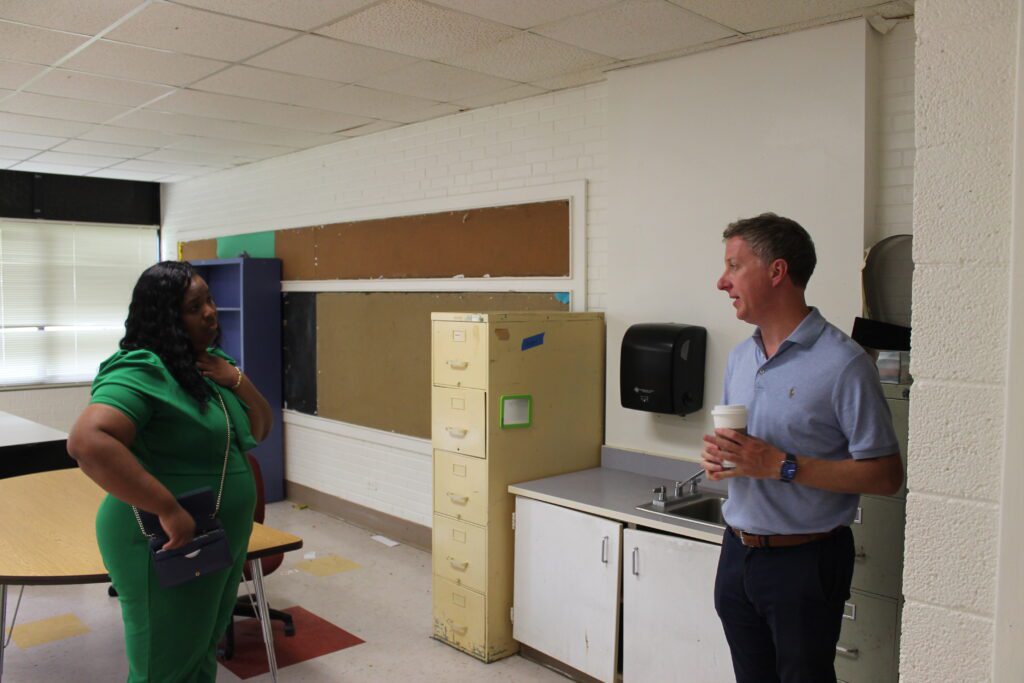
Turning to the right will bring you to the Family Resource Center, led by Antoinette Reid, ECPPS’s director of student services.
“Managing the parent center is one of 15 different things that I do,” Reid said with a laugh.
Reid said this will be the first time the Family Resource Center has ever been in a “real” building. Previous iterations were located in trailers that former principal Simona White referred to as “educational condos.”
Parker wants the new Family Resource Center to be a community space where parents and families can access computers and other resources that might help them advance their own educations, as well as their children’s.
“We’re hoping to be able to have it stocked, so that parents will be able to come out during the day to check out materials that they can use with their kids, like take-home reading, early literacy, manipulatives for reading and math, things to provide that homework help,” Reid said. “And on a monthly basis, we do host virtual Title I parent academies.”
ECPPS uses Title I funding to operate the Family Resource Center, supporting parents and other caregivers alongside students.
Around the corner from what will become the Family Resource Center are classrooms that will become offices, eliminating the need for district staff to work from more than a dozen “educational condos” across the county.
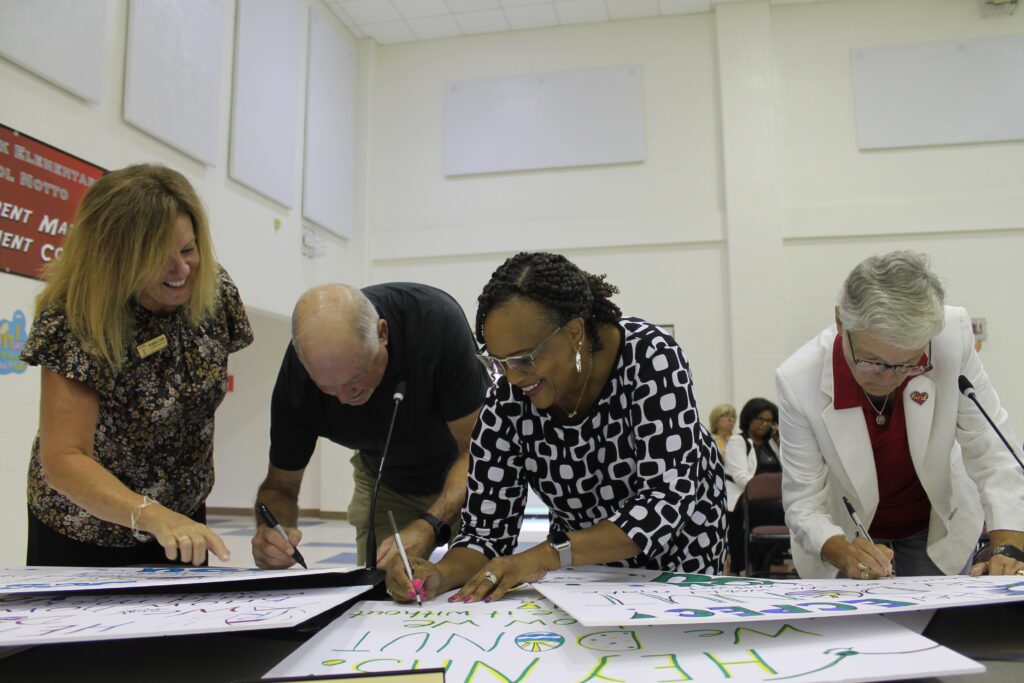
Pasquotank Early Childhood Center is an ideal location for those new offices because the district’s central office building is right behind the campus. School board meetings already take place in PECC’s multipurpose room, and the former media center is used for professional development training.
While some parts of the building are already in transition for their new roles, there’s still much to figure out. New playground equipment has been delivered but not yet installed, and there’s a lot of outdoor space that the district is still thinking about how to use.
They’re also thinking about how to manage bus transportation for the preschoolers and how to capitalize on the cafeteria space, potentially using it for nutrition demonstrations for families in addition to serving breakfast and lunch.
“One thing my staff is really interested in is having a rainy day space,” Morris-White said. On a recent visit to the Clara Hearne Pre-K Center in Roanoke Rapids, she and her staff saw a rainy day room permanently set up with gross motor skills activities for students and teachers to use during adverse weather.
“The teachers are so amazing,” Morris-White said. “I learn something from them every day, and I want to give them the world.”
“We are just really committed to being creative and trying to be forward thinking about this,” Parker said.
Stay tuned in 2025 as EdNC continues to follow the transition of Pasquotank Elementary School into the Pasquotank Early Childhood Center.
Behind the Story
Katie Dukes is a graduate of Pasquotank Elementary School. She and her spouse met there as students. She’ll be returning to Elizabeth City periodically through 2025 as the school takes on its new role in the community where she grew up. You can learn more about the case for school-to-community-child-care-hub conversions here.
